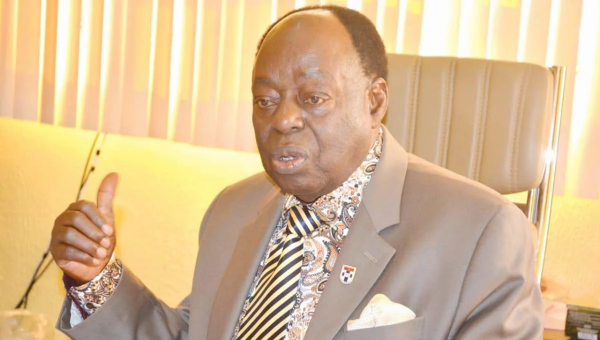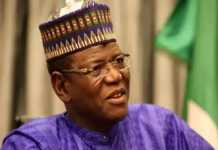
Chief Afe Babalola, a legal luminary and the founder of the Afe Babalola University in Ado Ekiti, has expressed displeasure with criticism of his proposal for an interim government when President Muhammadu Buhari’s term ends to pave the way for the writing of a new constitution.
Babalola bemoaned the fact that people who were supposed to be focused on developing a new model of development for the country were criticizing his proposal, which he described as patriotic and aimed at finding a long-term solution to the country’s problems.
Prof Samuel Igbatayo delivered the maiden ABUAD inaugural lecture on Friday, and the senior lawyer said his call for the postponement of the 2023 general elections and the establishment of an interim government for a six-month period to chart a new course for Nigeria was in the best interests of Nigerians.
He said that his position did not contradict the country’s democratic processes, and that the concept of an interim national administration had evolved through time and was being used in certain industrialized countries dealing with difficulties similar to Nigeria’s.
Also Read: 2023: Afe Babalola Proposes Interim Government, Says Nigeria Needs New Constitution
Babalola said, “Out of about 6,000 persons who have commented, 90 per cent, particularly the young people, the poor people and those who are looking for work, supported my view. I am happy about that because those are the people I am working for.
“Section 14 of the Constitution states clearly that the primary duty of the government is the protection of lives and property, and the welfare of the people. Unfortunately, the constitution is not made by either you or me. The preamble of the constitution says it was made by us, whereas, it was made by the military and that is why it is a nullity.”
He described the interim government as “a child of necessity urgently needed to serve as a veritable launch pad to a new Nigeria where the government’s actions and decisions will be guided by provisions of a new autochthonous legal framework that will replace the military-imposed 1999 Constitution.”




